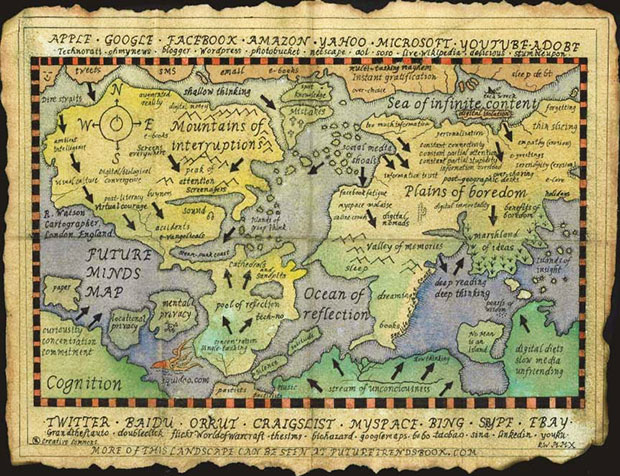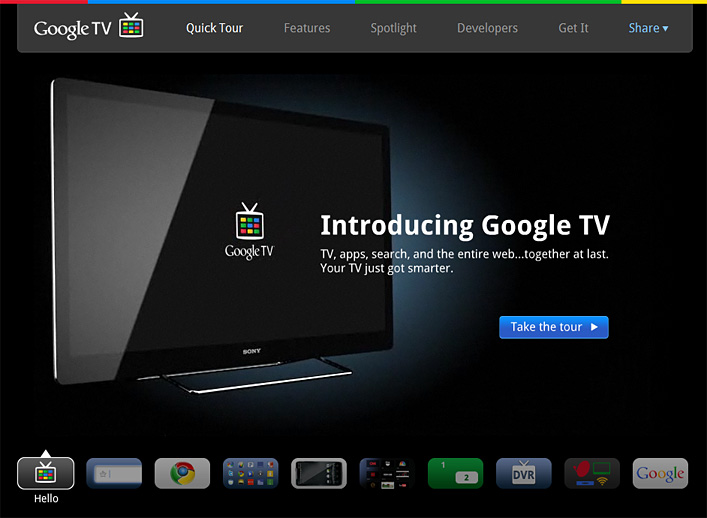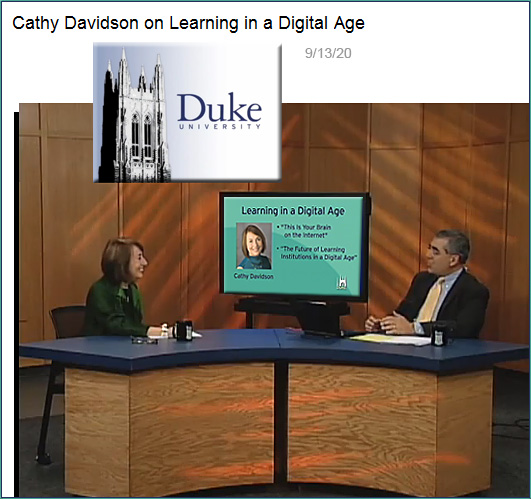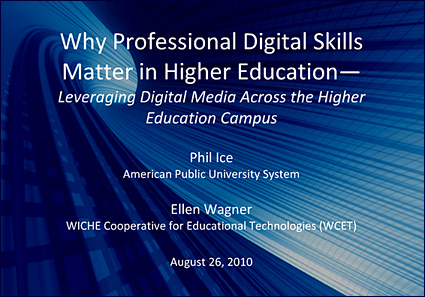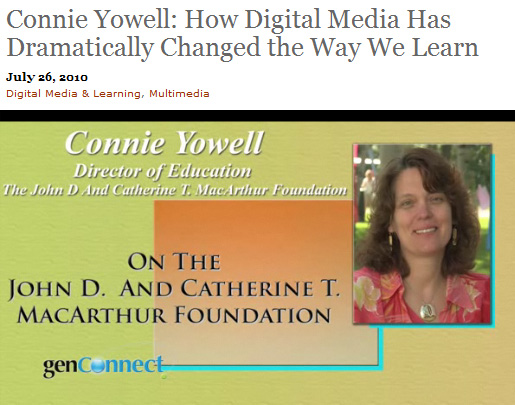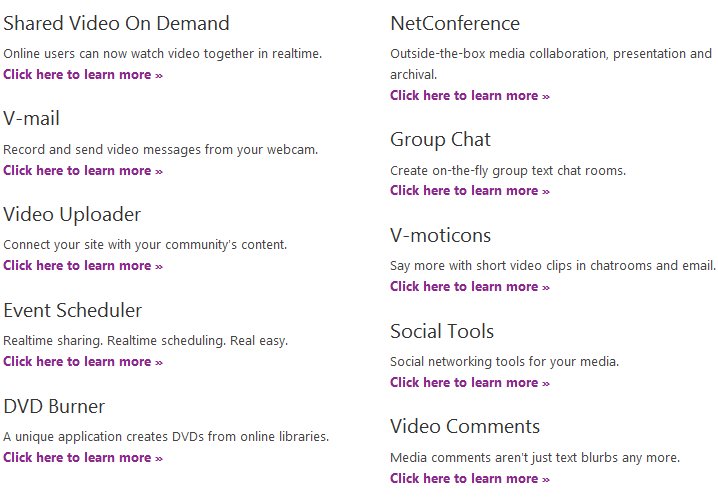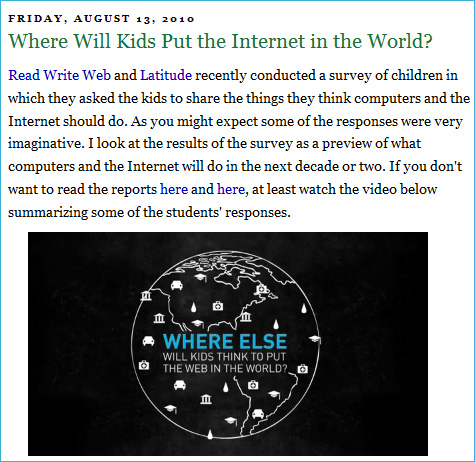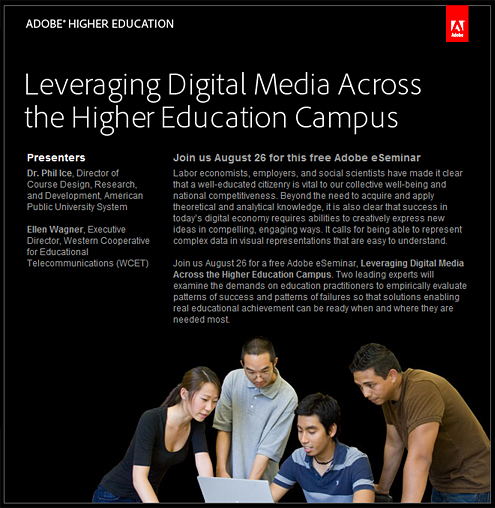New “ELI 7 Things”…Brief explores online media editing — from Educause Learning Initiative (ELI)
In the 7 Things You Should Know About Online Media Editing, EDUCAUSE Learning Initiative’s (ELI) latest brief in the monthly series, find out how the use of online media editing tools encourages instructors and students to explore learning activities and assessments with new media.
Excerpt:
What is it?
Cloud-based media editing applications allow anyone with web access and a suitable computing device to touch up photographs, mix music, and edit video. These web-based services may offer a more limited tool set than full-scale software editing suites, but they are generally cross-platform, device-independent, and less expensive, particularly as most offer at least some of their services at no cost.
What are the implications for teaching and learning?
Web-based editors reduce logistical challenges for instructors by providing all students with access to media editing tools. The free or low-cost nature of these editors allows students to use them to build complex and collaborative learning projects involving rich media, something that should be inviting to faculty members who take the approach that students learn best when they are engaged in projects that result in creative output. Because these tools are inexpensive or free and do not require sophisticated user skills, they offer faculty new avenues to devise new kinds of activities that go beyond the standard term paper and, in many cases, might be more representative of authentic assessment. Moreover, because the threshold is so low to use online media services, the opportunities they present to work in new media are open to students in virtually any discipline.









